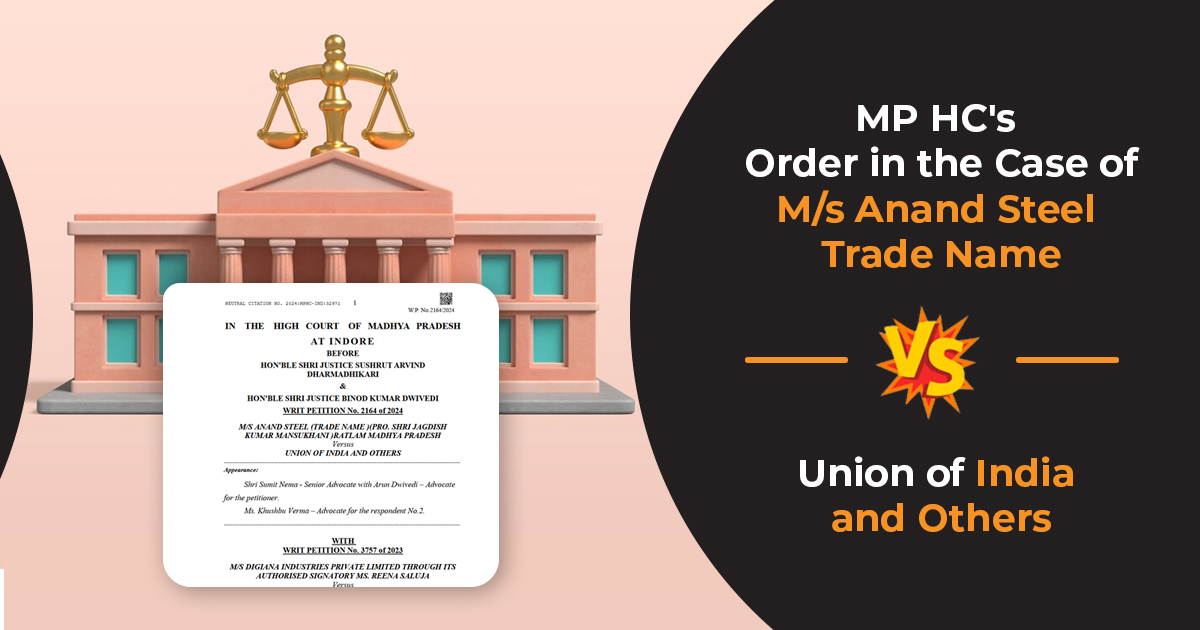
It was carried by the Madhya Pradesh High Court that the GST department may not unfairly prejudice the taxpayer via disallowing the Input tax credit (ITC) quoting the late returns post already imposing late fees for the belated Goods and Services Tax (GST) Returns filing.
The Madhya Pradesh High Court recently made a ruling on ten legal cases that were brought together by several businesses challenging a decision made by the tax authorities. These cases involved companies that are all registered as sole proprietorships under the Central Goods and Services Tax Act of 2017.
The HC towards convenience has proceeded to pass the order under the leading petition furnished by M/s Anand Steel.
The applicants have belatedly furnished their GST returns for the months between April 2018 to March 2019 in the Financial Year (F.Y.) 2018-19, including a late fee on the outward supplies claiming input tax rebate under the aggregate inward supplies for the pertinent period.
Hence the revenue furnished notices u/s 73 of the GST act intimating disallowance of the ITC for the tax period between 2018-19 bizarrely averring that the taxpayer has been late in filing the return in Form GSTR-3B. Even after filing a response to the purported notice the assistant commissioner of CGST moved to pass the impugned order u/s 74 of the GST Act.
Senior Advocate Sumit Nema, along with Arun Dwivedi appearing for Anand Steels on numerous grounds, challenged the validity of the constitutional of levying time limit to claim the ITC u/s 16(4) of the CGST ACT 2017 asserting loss to registered assessee as of the disallowance of claimable ITC.
On behalf of the tax department Additional Advocate General, Khushbu Verma, appeared challenging that the issue at hand has been sufficiently adjudicated by the Madras High Court in S.Banumathi vs The Commissioner, Greater Chennai Corporation and Ors. (2023).
The Division Bench of the Madhya Pradesh High Court comprising Justice Sushrut Arvind Dharmadhikari and Justice Binod Kumar Dwivedi marked that a right on ITC is made when an assessee duly fulfils all the conditions mentioned in section 16(2) of the act. Any time limit levied through the inserted section 16(4) has been overridden under section 16(2) which is a non-observant provision.
The bench noted the absence of provisions controlling the filing of the amended returns under GST statutes where the assessees file the monthly returns and are being made to wait for a long duration of time to reconcile any mismatched GST and allied financial records.
The court ruling highlighted that allowing a taxpayer to pay late fees along with interest for late GST return filings is a more reasonable approach than denying them input tax credits simply because their returns were filed late. The court argued that punishing a taxpayer twice for the same mistake is unfair and unreasonable. This decision aims to create a fairer system for managing late filings and their consequences.
The Division Bench while granting relief before the applicants permitted the petitions noting that no need is there to analyse the Constitutional validity of Section 16(4) of the GST Act, setting aside all of the impugned show-cause notices and assessment orders.
| Case Title | M/s Anand Steel Trade Name vs. Union of India and Others |
| Citation | Writ Petition No. 2164 of 2024 |
| Date | 22.11.2024 |
| For the Petitioner | Shri Sumit Nema, and Arun Dwivedi |
| For the Respondent | Ms. Khushbu Verma |
| Madhya Pradesh High Court | Read More |